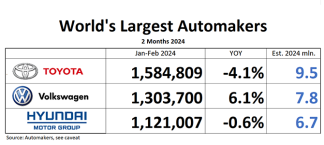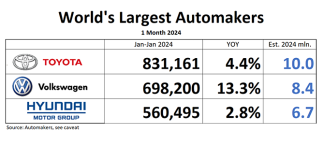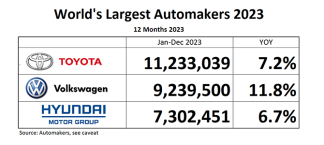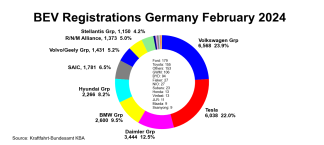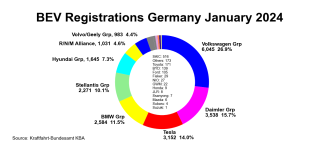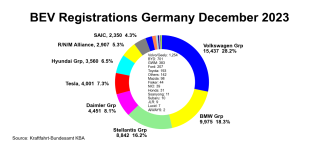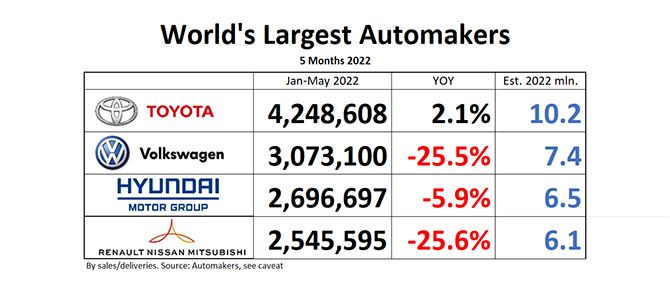
It finally happened: The Renault-Nissan-Mitsubishi Alliance, the auto group that missed becoming world’s largest automaker by a very thin hair in 2017, has been kicked off the podium. It has been removed from the Top 3 by a very resilient Hyundai Motor Group, i.e. Hyundai and Kia.
Ever since a cabal of Nissan executives toppled its erstwhile savior, the autocratic, but highly efficient Carlos Ghosn, the Alliance has been paying the price of infighting and palace intrigue paired with a big dose of nationalism. Leaders usually become endangered when luck is no longer on their company’s side. But it takes a special kind of stupidity to stick knives into your leader just when he led you from near-death to the top of the world. And while we are on nationalism, it must be especially disheartening for a proud Japanese to be outranked by a Korean.
Sure, the auto business is past its cyclical peak, exacerbated by COVID, supply chain disruptions, and a shooting war in Europe. But a look at the Top 4 shows that consumption disease is treatable – if you take the right medicine.
Global total industry volume was down 10.7 percent in May, not by a quarter as the Alliance and Volkswagen would make believe. Despite being pummeled by the same headwinds, Hyundai is down only 6%. Toyota could even edge out a small gain.
And now for the usual disclaimer: Daily Kanban ranks world’s largest automakers by sales. We used to determine the largest automaker in the world by looking at production, because this was how the global automaker umbrella association OICA had done it in the past. OICA seems to have thrown-in the towel, and you no longer will find any recent auto manufacturer rankings on the previously authoritative OICA website, neither by production, nor by sales. Reliable production data are harder and harder to come by, forcing us to switch to sales/delivery data published by automakers. Be aware that “deliveries” can be a rather elastic term. Deliveries can be sales to end users, or cars dumped on dealer lots, or cars “delivered” to sales organizations, or combinations thereof.
Also, please note that Mitsubishi Motors does not publish global sales, only domestic sales in Japan. For that reason, we are forced to use Mitsubishi’s published global production data as a proxy. Speaking of the Alliance, their number reporting is not allied at all, and a common picture requires considerable Excel machinations. Nissan and Mitsubishi report sales and production, Renault only reports deliveries. Mitsubishi does not report global sales, Nissan does. To make the confusion complete, Nissan sometimes reports sales for the April-to-March fiscal year, and sometimes for the calendar year.
